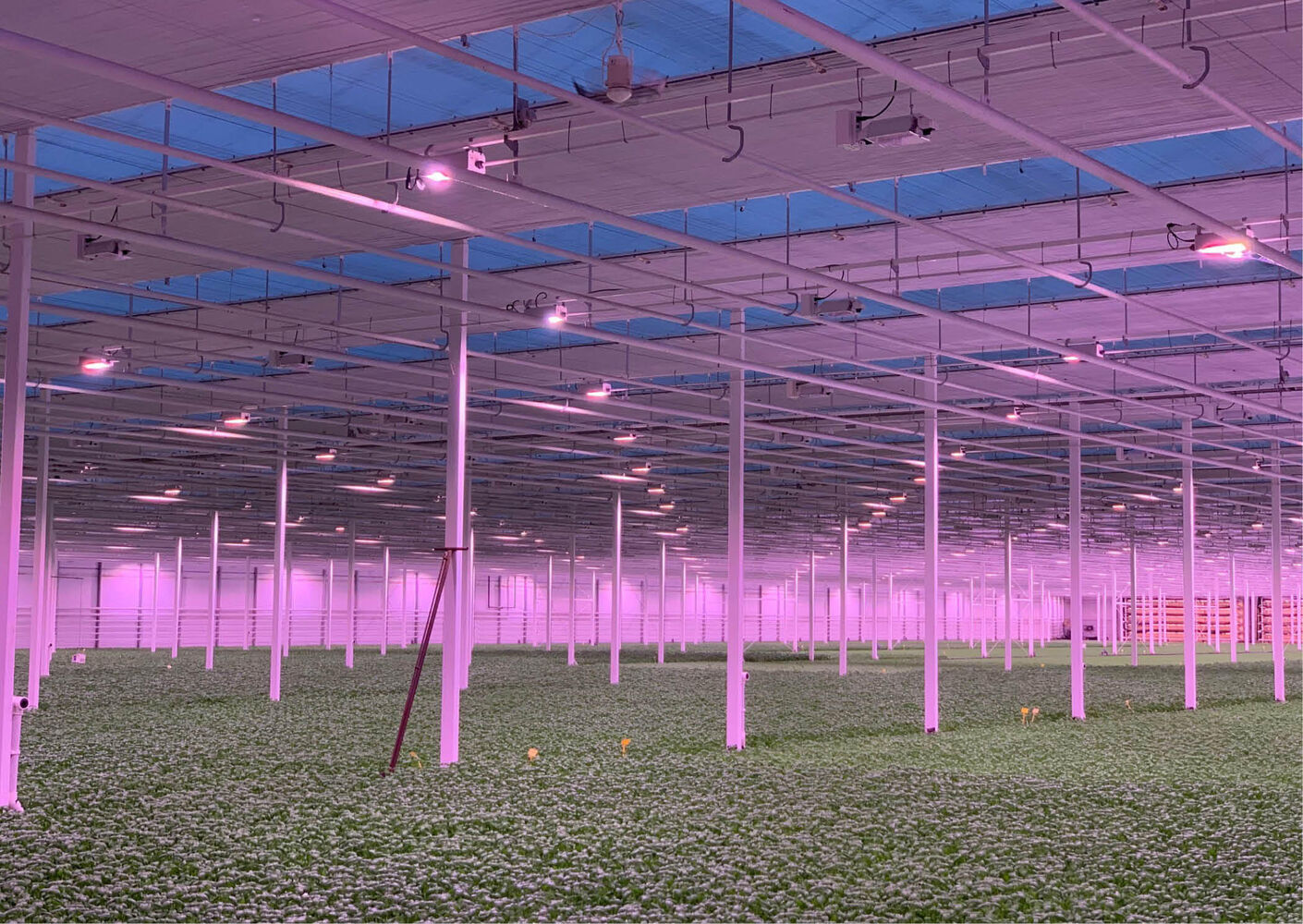News
We wouldn't have made it without LED
De Kruidenaer has been growing basil in a hybrid setup with water-cooled LED lighting from Oreon since 2016 (and was one of the first in the Netherlands to do so). Grower Christ Monden was happy: more production due to a shorter growth cycle and better quality, more resilient basil plants. But customers demand a longer shelf life for packaged basil. He had to find a solution, and besides introducing new techniques such as nanobubble technology and biodegradable plugs, he also took a close look at the light spectrum of his LED fixtures.
He uses assimilation lighting to supplement natural sunlight as much as possible and extend the day length. The custom spectrum colors enable the plant to be better controlled, with more leaves and a better stem stretch. The initial spectrum consisted of 10% blue and 90% red. The colors and proportions in sunlight are different, and the basil turned out to be sensitive to the composition of that spectrum in combination with natural sunlight. Research has shown that adding more blue and green light complements natural sunlight better. In winter, the days are shorter and there is less sunlight, so there is proportionally more far-red light present. By compensating for this with more blue and green light, you get a better transition from day to night and vice versa, which causes the plant less stress.
They teamed up with Oreon in this process and together they agreed on a sustainable solution: replacing the light sources in the existing fixtures. New PCBs were installed, and the lamps were given a new glass cover to guarantee continued IP67 water resistance. To make the transition as easy as possible, the refurbished lamps were replaced during the summer. De Kruidenaer has been growing with this new light recipe for almost six months now and Christ is very happy with it: “The lamps can be left on for longer, which means we have higher yields, and the basil has a shelf life of over 7 days, so we can meet the quality demands of the supermarkets.”
Richard Smits, manager at De Kruidenaer, adds: “We wouldn’t have made it without LED. In the past few weeks and months, we have had fewer hours of sunshine compared to the year before. Without LED I would have had no light at all. Despite the dark days, the quality of the basil has improved with the help of the new spectrum. Of course, we are also suffering from high energy prices; our gas price is sometimes four times higher than before. We only switch on the HPS lighting when the gas price allows us to. The LED lighting is on almost continuously; LEDs use much less energy and we reuse the heat from the lamps to heat our grow ponds. A win-win situation, because no energy is lost.”

